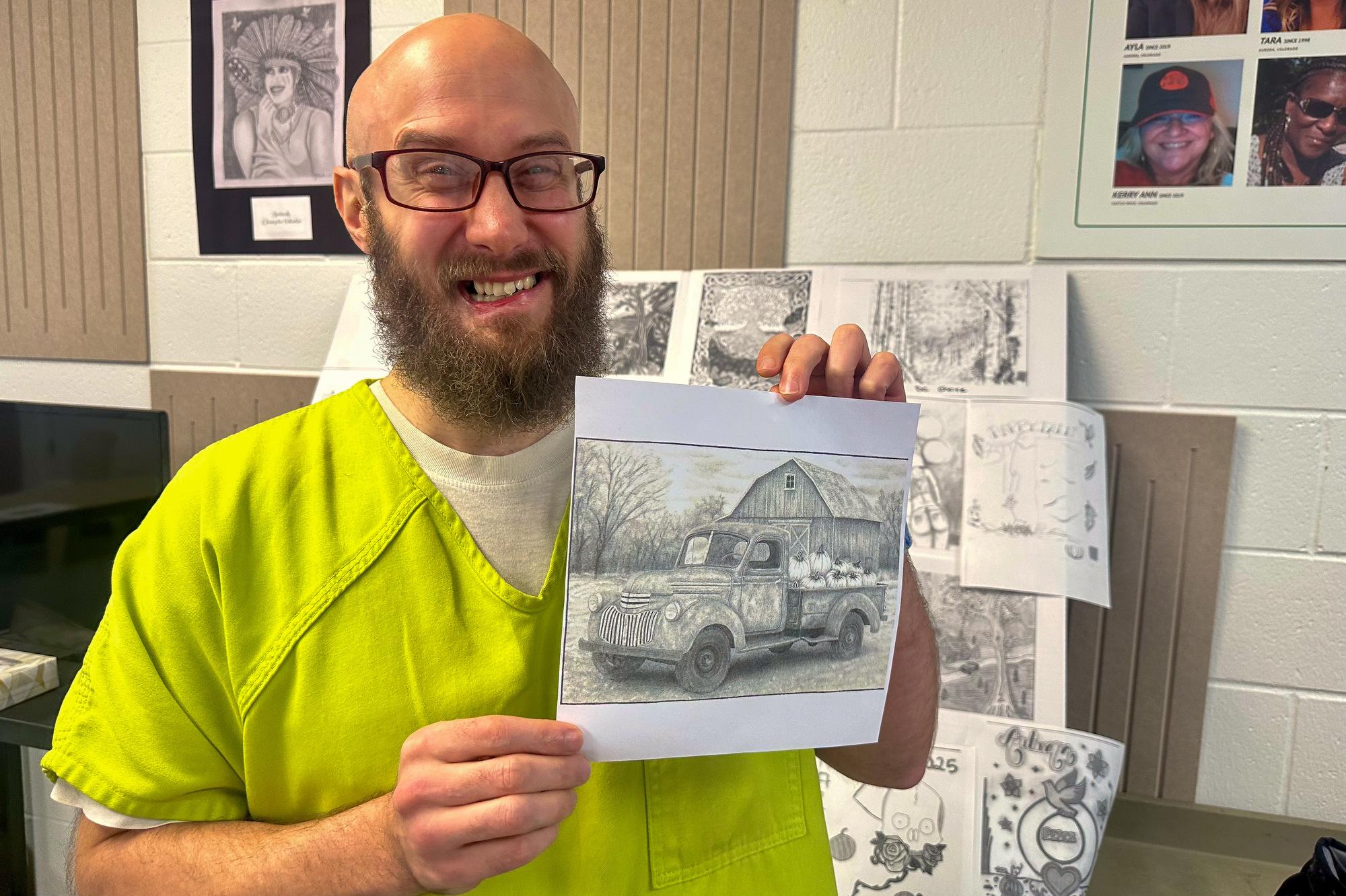
Longtime Democratic Congressman Ed Perlmutter said Friday his decision to retire after eight terms came together over the Christmas holidays, influenced in part by what he sees as the need for new representation at a time when the geographic boundaries of his district are changing.
Perlmutter represents the state’s 7th Congressional District, now composed mostly of Denver’s northern suburbs. Last year’s redistricting process added several mountain counties to the area his successor will represent.
In a November interview with Colorado Matters host Ryan Warner, Perlmutter said he was planning to run for reelection. In fact, he told Warner Friday, he had not made up his mind at that point.
“I hadn't made a final decision. You asked me and I kind of hemmed and hawed, and danced around it. And I apologize to you and to your listeners for that. But in this business, you're running until you're not.”
Perlmutter also spoke about his frustration with fellow Democrats who are blocking his Safe Banking Act to legalize financial services for the marijuana industry, his request for a review of law enforcement’s handling of the suspect in a mass shooting last month, and his pride in his congressional staff.
This interview has been edited for clarity and length.
Ryan Warner: In November, did you know deep down inside that you didn't want a ninth term?
Ed Perlmutter: I knew that I'd been thinking about it. I hadn't made a final decision. You asked me and I hemmed and hawed and danced around it. And I apologize to you and to your listeners for that, but in this business, you're running until you're not.
Right after Christmas, I made the decision that it's time for me to look for something new and it's time to have new folks represent the 7th Congressional District. I look forward to doing something else. The 7th District, with pretty new contours of the district, will have a new representative.
Warner: Because of redistricting and new shapes to many of the districts in Colorado. You've said in other interviews this week that you wanted to leave Congress while you still liked your colleagues and while they still liked you. I'm curious if the insurrection — the storming of your workplace — at all played a role in this decision.
Perlmutter: A lot of things have played a role. My dad had a saying, ‘Leave them laughing and don't wear out your welcome.’ I was talking about both my colleagues and the people of the 7th, who have been very kind to me. And the people of this district have given me the honor to represent them in Washington.
The mob scene on January 6th, [2021] certainly didn't warm my heart. It was a terrible day with the riot, but it was a great day because we picked ourselves up and finished certifying the election of Joe Biden as president. [An election] that Donald Trump lost. So it was a terrible day and a great day all at the same time.
But it's a combination of things for me to choose to do something new. I've been doing this for a long time when you take my service in the state senate and you add it to the service I've now had as a member of Congress.
Warner: That's right, you were at the statehouse before you were at the U.S. Capitol. Because of the new boundaries, your 7th district is likely to be less of a shoo-in for Democrats. Do you risk a Republican victory by removing an incumbent's natural advantage?
Perlmutter: You always risk a Republican victory. Every election, the people get to make their decision as to whether they want to retain somebody or pick somebody new. For me, this district starts out better than the 7th started out back in the early 2000s, better than the district that started out in 2012 in terms of a Democrat-leaning district. But whoever follows me is going to have to prove themselves and the voters will make a choice. Just like every two years, a member of Congress makes a choice whether they are going to run or not, the people get a choice whether they're going to rehire them or not.
Warner: Are you ready to endorse anybody?
Perlmutter: No. We got a great bench. Brittany Pettersen has gotten off to a good start. There are others who are close friends of mine: Lesley Dahlkemper, who is a commissioner here in Jefferson County; I think Brianna Titone is looking at it; some others maybe. I want to give them a little space, but I can tell you I think Brittany has gotten off to a good start.
Warner: Did fears of being in the minority drive this decision at all? I don't want to say that that's a fait accompli, but it's a possibility.
Ed Perlmutter: No. It didn't. I've been in the minority. I like the majority a lot more than the minority, no question about that. But that didn't really have an impact on my decision.
In the state senate, I served in the minority for six years and then we won the state senate in 2000. We hadn't held the state senate since John Kennedy had been president. So I served two years in the majority that time.
In the Congress, I've been in the minority fr eight years and I will have been in the majority eight years. I was pretty successful serving in the minority because my style is: I like people, whether they're Democrats, Republicans, unaffiliated — I just like people. That has held me in good stead and I've been able to get things done regardless of who was in the majority and who was in the minority.
Warner: You co-signed a letter to the Justice Department asking for an investigation into law enforcement's handling of the gunman in December's Denver-Lakewood shooting spree. What do you hope might come of this?
Perlmutter: We don't want to have gaps where one agency isn't sharing information with another law enforcement agency. [The gunman] had specific targets, so there were some personal vendettas. He had a lot of ideological rants: a lot against women, a white supremacist tinge to the whole thing. Nationally, we've had a number of instances now, starting in Orlando with the Pulse Nightclub, where we've missed it, even though there were signs. I think as a national matter, not really looking just at Denver exclusively, we need to have better information sharing and make sure that the agencies aren't in silos. If somebody's on the radar screen, [we need to] have a reason why he drops off the radar screen — which is what happened here.
Warner: Let's discuss a nut you haven't been able to crack, and that's giving marijuana businesses that operate legally under state law access to financial services, which are often federally regulated. That has passed the House repeatedly. It's been blocked by the Senate, currently by Majority Leader Chuck Schumer, a member of your own Democratic party. What's going on there?
Perlmutter: Well, that one still has me pretty irritated. We passed it with big bipartisan votes in the House, with the purpose being public safety. So much cash is generated in this business: it attracts robberies, and we had a murder here in Colorado. There have been murders across the country because there is so much cash. These businesses need to have banking services.
We passed it when the Republicans were in charge of the Senate, and when it went over there to the Senate, they said basically the bill's too big and too broad. Then we pass it, the Democrats are in charge, all of a sudden it becomes too narrow and too limited — it wasn't big enough for Chuck Schumer.
I have not given up on that one, Ryan. I'm going to get that darn thing passed this year, while I serve out my term.
Warner: Do you have the sense that if it passed both chambers, you have a president who would sign it?
Perlmutter: Yes, absolutely. Treasury Secretary [Janet] Yellen, has been talking to me about this for years. We're at 47 states that have some level of marijuana use — including all the territories and the District of Columbia — and they need to have legitimate banking services. It's just a no-brainer in my opinion.
Warner: What are you proudest of in your time as a member of Congress?
Perlmutter: I'm proudest of my office, my staff. I'm going to get a little emotional, so I apologize. But I have, in my opinion, the best staff in America who have served the people of this district in Colorado at a level that I just don't think can be surpassed. My chief of staff on down to the interns have been so competent, so trustworthy, so hardworking.
I'm proud of a legacy of people that have worked directly for me and have chosen to go into public service, starting with Alec Garnett, who's the speaker of the [Colorado] House. There are seven or eight people that have become elected officials.
In terms of projects, I think the expansion and growth of the National Renewable Energy Lab, the building of the VA hospital, and continuing to build the aerospace industry here in Colorado.
Then I've got specific personal stories: when I helped get the Iwo Jima vets over to Iwo Jima when their charter had been canceled; when we got the bodies back of three young men who couldn't fight with our own army, but went to fight with the Kurds against ISIS and got killed in Syria. It was a diplomatic nightmare to get their bodies back.
Warner: Before we go, I'll note that for a short time in 2018 you ran for governor then withdrew from that race. Do you have any gubernatorial hopes?
Perlmutter: No, these last four years in the Congress have been great. I've been proud of Jared Polis and the service he's provided to our state in very difficult circumstances, whether it's COVID or shootings or wildfires. So I'm going to give myself a pat on the back for stepping back. Jared is a good friend of mine. We've been buddies for a long time and he's doing a heck of a job.









